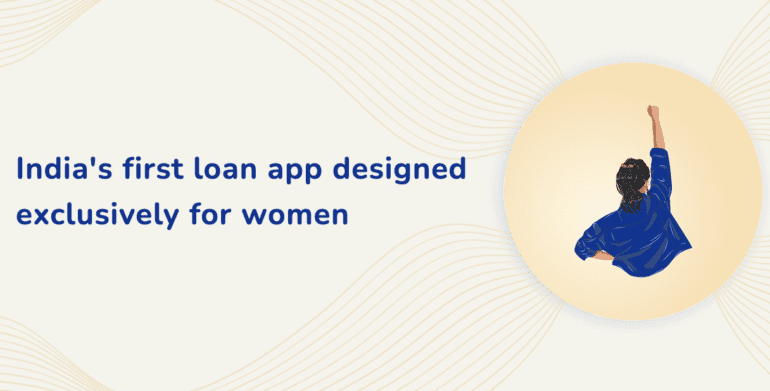Poshak Agarwal and Rahul Subramaniam started Florence Capital to provide Indian women with the same access to capital that men enjoy. They’re doing it through access, knowledge, and ethics.
After graduation from Princeton a decade ago, Agarwal and Subramaniam returned to India and started an education company; while operating it, they learned how pervasive the problem of affordable credit access was in India, where loan sharks typically charged 10% a month, and Chinese loan sharks commanded 600% annual rates.

Small entrepreneurs could not get capital for personal or business needs, and when the pair dug deeper into the issue, they learned it was even worse for women, who only get 26% of loans in India.
“There is an institutional bias against women seeking credit,” Agarwal said. “If the financial profile of men and women is the same, on average, it’s twice as hard for women to get a loan in India than it is for a man.”
India’s culture brings both challenges and opportunities
Those are the seeds of Florence Capital, but the work was beginning as the company operates in a unique environment. In India, many women have been removed from the entire process of financial decision-making, Agarwal said.
Even if they are working, many women see their investments and other financial decisions handled by husbands, brothers, and fathers. They had to develop a system that provided women with safe and private access to economic opportunities.
Related:
India’s high digital literacy rate provided the perfect foundation for their plans, Agarwal said. The country has wholly leapfrogged the PC and gone straight to mobile technology. The masses went to cheaper smartphones and benefited from some of the planet’s most affordable data rates.
“We are 100% mobile,” Agarwal said. “There is no way to get a loan from us by going to a website. Now you’re going to get a billion people with smartphones; it’s like the printing press in India. People who cannot even type, they speak on the phone.”
Building a female-friendly platform is a great business opportunity
Because many women had long been excluded from financial matters, Agarwal and Subramaniam tapped their educational experience to build Florence Learning, a digital community where they empower women through two- to three-minute videos on different financial topics.
The introduction to finance course consists of nine three-minute videos. The videos are entertaining while informing; they include quizzes and games.
The entire Florence experience is welcoming to women, Agarwal said. The collection and customer service staff are 100% women. Agents will not speak with men claiming to be acting on behalf of a female relative.
“We keep the design women-friendly,” Agarwal said. “Women love the name Florence. It evokes the Renaissance. We’re trying to do something revolutionary, something progressive. We can probably get better, but we’re working hard.”
There is also a strong business case to lend to women, Agarwal stressed. One in nine are entrepreneurs, and 88% are salaried. Their average age is 28, with most ranging between 21 and 35. More than half own their own home. Research shows that they default on loans less often than men do.
Yet half either have no credit footprint or are thin-file, with the main culprit being outdated screening processes that fail to reflect modern Indian society, Agarwal explained. More and more women are graduating with college degrees in high-demand fields, but traditional finance firms often reject them because they have no history.
“You come out of technological university, and you took computer science, banks won’t lend to you, but I will,” Agarwal said.
Why traditional data analytics are outdated
He added that traditional scoring systems also fail to account for the many successful careers Indian women forge in the economy. There is a thriving mobile industry where beauticians visit clients’ homes, yet banks won’t lend to these entrepreneurs. After-school tutors can make triple what the daytime teachers make, but guess which group doesn’t qualify for bank loans?
“We are happy to lend to the self-employed segment because they’re skilled people,” Agarwal said. “They just decided not to work a normal job. That’s fine. What has happened is that in the past 20 years, the economies have changed rapidly, right? So the factors that used to be relevant aren’t as relevant today.”
Traditional scoring systems do not even account for how young professionals live, Agarwal said. In cities like Delhi, many professionals live as “paying guests” who rent a room in someone’s house. They work good jobs, but because they do not own their own home or have a registered rental agreement, banks are biased against them.
“Some of the stuff that banks use is useful, but much is not, so we had to rethink the entire credit process,” Agarwal said. “We only use a traditional credit score, the bank credit scores as a filter, but we don’t read too much into them. Then we built our scores based on our modeling work.”
The growth plans
Looking ahead, Agarwal said Florence plans to expand its loan capacity and its education plans. They are also developing a SaaS-based product to help lenders in other digital markets. Those goals support a dedicated investor group, including Mike Novogratz, Steve and Zach Kreider, Rishi Jaitly, Amit Singhal, and Marcelo Yaluk.
Agarwal said that it’s notable that half of Florence Capital’s loan portfolio comes from its community work in this digital age. Women tell each other about it. Agarwal likens it to the Delhi subway system, which offers women-only cars.
“Women love it; they feel safer,” Agarwal said. “We didn’t get much of a social pushback. We get questions like ‘how can male founders run a female loan product,’ and we said, “We’re proud to do that. Because for a revolution to truly happen, the entire society has to participate, and we are so proud of that.”


